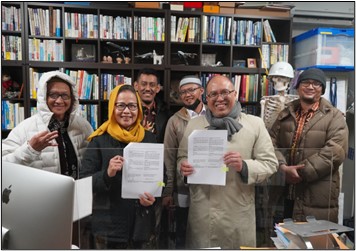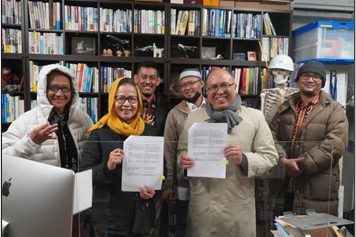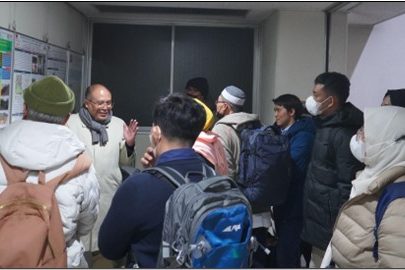
February 25th 2025, Universitas Gadjah Mada (UGM) expanded its international cooperation network by establishing strategic partnerships with Chiba University and Yamaguchi University in Japan. The Environmental Science Program and Environmental Management Master Program at the UGM Graduate School conducted an intensive visit from February 24th to March 2nd 2025, aimed at exploring collaborations, conducting benchmarking, and promoting the study program.
Strategic Cooperation and Academic Strengthening at Chiba University. The UGM delegation signed a Cooperation Agreement (PKS) with the Josaphat Microwave Remote Sensing Laboratory, at Chiba University, Center for Environmental Remote Sensing. This agreement includes several key points:
- Josaphat Tetuko Sri Sumantyo, Ph.D., will be sent as a speaker at the 13th International Graduate Students and Scholars’ Conference in Indonesia (IGSSCI) 2025.
- Josaphat Tetuko Sri Sumantyo, Ph.D., will be a guest lecturer in the Remote Sensing and Geographic Information Systems course.
- Josaphat Tetuko Sri Sumantyo, Ph.D., will serve as an advisory board member for the UGM Environmental Management Studio.
In addition to the signing of the agreement, both universities discussed further potential collaborations, such as joint research through the Ceres Collaborative Study Program and a dual degree program. The benchmarking activity at Chiba University focused on strengthening expertise in remote sensing and geographic information systems, as well as developing the UGM Environmental Management Studio. This benchmarking was directly guided by Prof. Josaphat Tetuko Sri Sumantyo, Ph.D. The results of the benchmarking showed the urgency of strengthening remote sensing and GIS courses to support various environmental science disciplines.
The Josaphat Microwave Remote Sensing Laboratory (JMRSL) at Chiba University serves as an example of a laboratory with advanced technological facilities and excellent management systems. UGM plans to adopt several aspects of JMRSL to improve the quality of the Environmental Management Studio, including strengthening infrastructure, developing remote sensing-based monitoring systems, and enhancing human resource capacity.
Author: Berlian Belasuni.


